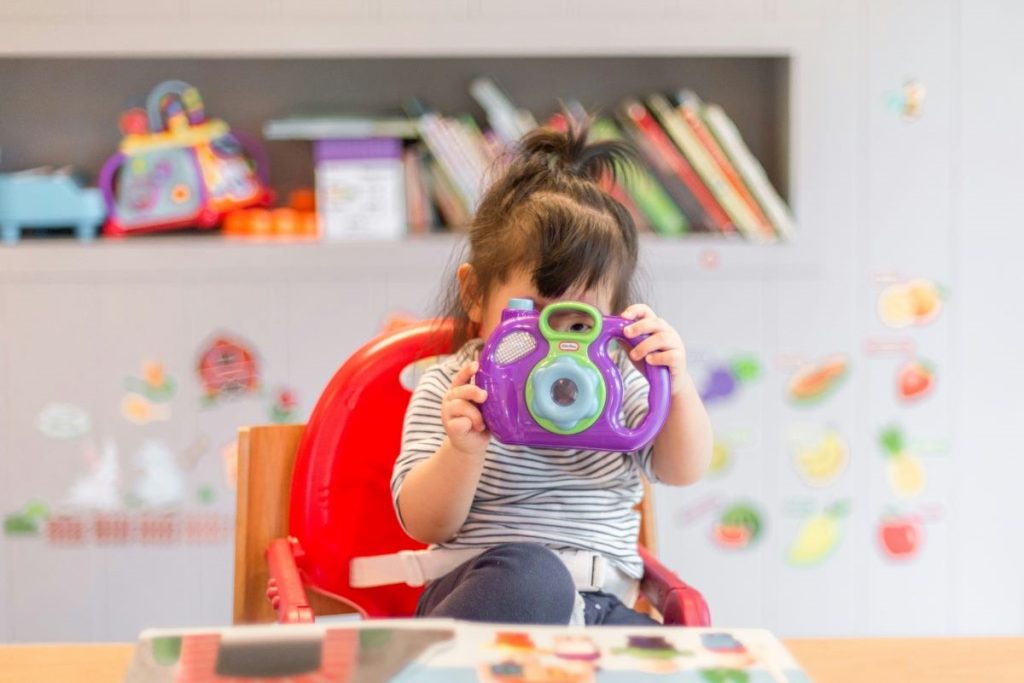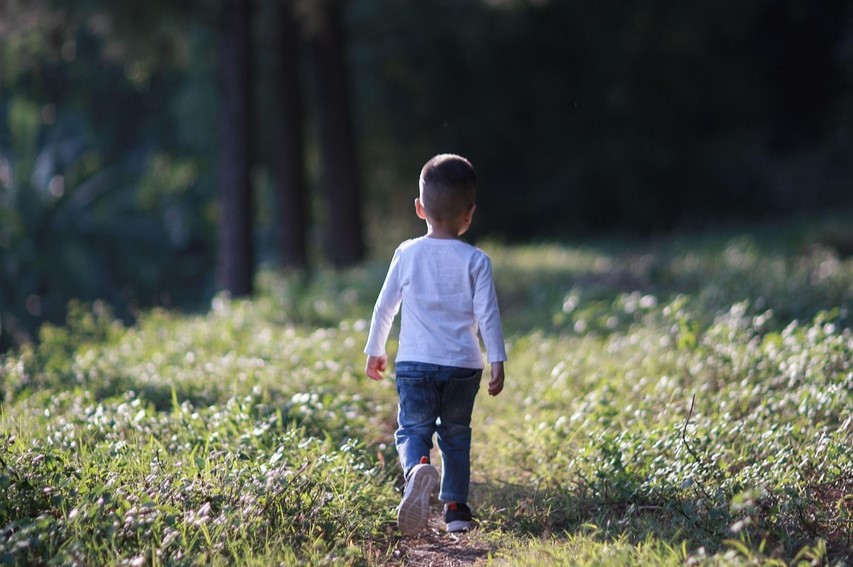It’s not just the big decisions or grand gestures but the small daily habits that build a foundation of faith and character, said Rev Ian Lee. He was speaking to an audience of parents at the Wesley Plaza about “Shaping Little Hearts through Parenting Habits” on 9 March 2025.
The Israelites had a thrice daily habit of Shema, a prayer that reminded them to keep God at the centre of their lives. Similarly, the daily rhythms in our homes, whether a morning blessing, family mealtime or a bedtime prayer, can shape us and our children—for better or for worse.
Frederick Douglass wisely said, “It is easier to build strong children than to repair broken men and women.” The habits we cultivate form the foundation of what our children believe matters most.
“Our kids are growing up in a world with values vastly different from ours,” said Pastor Ian. “The only thing that will sustain them is the [biblical] worldview we’ve built into their hearts through daily habits and routines.”

1. Make Positive Habits Sacred
One of the most powerful parenting tools is having sacred routines, said Pastor Ian. These are acts or routines that, when repeated consistently, can reinforce values and behaviours. For example, a “drop-off liturgy” can be a meaningful way to start the day with your child, just as a “bedtime liturgy” can help your child feel loved and safe and build a relationship with God (see below).
Another sacred habit is protecting mealtimes. “Mealtime is sacred,” emphasised Ps Ian. “We put our phones away and focus on conversations with each other because conversations matter.”
A third sacred habit is keeping the Sabbath despite the difficulty of observing it in today’s busy society. Neglecting this can send the message that other things—homework, exams, enrichment classes or even work—are more important than worship and rest on Sabbath. If children from a young age are taught that Sundays are just another day for studying or extracurricular activities, they’ll grow up naturally prioritising that. Such habits that we instil in them—whether it’s honouring the Sabbath or treating it as just another day—will shape their worldview.
2. Replace Negative Habits
It’s not enough to simply eliminate negative habits; we must replace them with positive ones. For instance, instead of reaching for our phones first thing in the morning, we can start the day with Scripture and prayer.
“I’ve always found it hard to be consistent with my quiet time until I saw a need for it to replace my compulsion to check my phone the moment I woke up. That replacement has not only helped with my anxiety but has enabled me to respond more patiently with my kids and wife throughout the day,” shared Pastor Ian.
Secondly, replacing negative habits also applies to how we talk about our children. Complaining about our kids in front of others can be damaging to their self-esteem.
“Now, we intentionally try to speak positively about our children, and it’s had a positive impact, as they realise this is how dad and mum see them and ‘this is my identity’,” said Pastor Ian.
Thirdly, we’ve come to realise that our habitual response to challenging behaviour, especially after a long day, is often to react impulsively. To counter this, Pastor Ian has printed out a liturgy titled “A Liturgy for a Moment of Frustration with a Child” from the book Every Moment Holy.
“The framed copy of the liturgy hangs on our wall as a daily reminder to respond with love and patience, even when we are tired or frustrated.”

3. Curate What We Habitually Consume
The stories and media we expose our children to play a significant role in shaping their worldview. As parents, we must be intentional about the content they consume.
“We’ve started paying attention to the virtues portrayed in the stories our kids watch,” said Pastor Ian. “For example, we prefer movies like Inside Out, where Bing Bong sacrifices himself for Riley, over narratives that prioritise self-fulfilment above all else.”
This doesn’t mean eliminating all popular media but guiding our children to recognise and appreciate values like self-sacrifice, kindness and courage. “We watch shows with our kids and discuss the themes afterwards,” shared Pastor Ian. “It’s a way to help them think critically about the messages they’re absorbing.”
We also need to curate the digital media that we as parents habitually consume, especially social media. Setting limits on screen time is essential—such as limiting it to 15 minutes a day. This models healthy habits for our kids and shows them that our attention and presence are more valuable than endless scrolling on screens.
The Power of Daily Habits
In the book of Daniel chapter six, Daniel knelt in prayer three times a day facing Jerusalem with his windows open. This is despite King Dairus’ decree that anyone caught praying to a god or human other than the king for 30 days would be thrown into the lions’ den. Daniel’s act is a habit that is rooted in the Shema (a Jewish prayer and declaration of faith). It was likely instilled in Daniel from childhood by his parents and had become an unshakable part of his life.
This story reminds us that our children are growing up in a world—our modern-day Babylon—with values increasingly at odds with our faith. In such a world, arguments and debates may not always be enough. Instead, it is the daily habits and rhythms of faith, passed down through generations that will shape their hearts and minds.
As parents, we must intentionally anchor our children in practices that keep them connected to God, even when the culture around them pulls in the opposite direction. By modelling and teaching these habits, we equip them to stand firm in their faith, whatever the challenges they face.

Two Liturgies Parents Can Practice with Their Children
School drop-off liturgy:
- Parent asks, “Where are your eyes?” Child points. Parent says, “Use them to see what God is doing around you. See the needs of others.”
- Parent asks, “Where are your ears?” Child points. Parent says, “Use them to listen. Listen to your teachers, listen to the Holy Spirit speaking to you. And use them more than you use your mouth.”
- Parent asks, “Where is your nose?” Child points. Parent says, “Breathe in the air that God has given you to breathe, trust in Him for every single moment.”
- Parent asks, “Where is your mouth?” Child points. Parent says, “Use it to eat all the food that you’re given, regardless whether you like it or not, and to speak blessing and encouragement to others.
- Parent asks, “Where are your hands?” Child lifts them up. Parent says, “With your hands, use them to give hugs.”
- Parent asks, “Where are your feet?” Child points. Parent says, “Run, run, run, have lots of fun in school today.”
- Parent asks, “Where is your heart?” Child points. Parent says, “May it always be sensitive to God.”
Bedtime liturgy:
- Parent: “Do you see my eyes?” Child: “Yes.”
- Parent: “Do you see my eyes see your eyes?” Child: “Yes.”
- Parent: “Do you know I love you?” Child: “Yes.”
- Parent: “Do you know I love you no matter what bad things you do?” Child: “Yes.”
- Parent: “Do you know I love you no matter what good things you do?” Child: “Yes.”
- Parent: “Who else loves you like that?” Child: “God does.”
- Parent: “Even more than me?” Child: “Yes.”
- Parent: “Rest in God’s love.”
Source: Justin Whitmel Earley’s Habits of the Household
Practical Resources for Parents
For parents looking to cultivate meaningful habits, here are some recommended resources:
• https://www.thecommonrule.org by Justin Whitmel Earley: Outlines 8 daily and weekly habits to help people live with greater purpose and faith in their busy lives.
• Habits of the Household by Justin Whitmel Earley: A practical guide to creating rhythms of faith and connection in your home.
• The Tech-Wise Family: Everyday Steps for Putting Technology in Its Proper Place by Andy Crouch: A practical guide for families trying to navigate an increasingly digital age.
• Every Moment Holy by Douglas McKelvey: A collection of liturgies for everyday moments, including parenting challenges.
• The Big Picture Story Bible by David R. Helm and Gail Schoonmaker: An account of God’s love for the world and His keeping of a big promise.
• The Jesus Storybook Bible by Sally Lloyd-Jones: A beautifully written children’s Bible that connects every story to Jesus.
• Tales That Tell The Truth series, eg. The Garden, The curtain And The Cross; The Storm That Stopped: A series that has beautiful illustrations that teach children about Jesus’ power to forgive, save, and love each of us.
• Good News for Little Hearts series: A set of children’s books that address common struggles with biblical wisdom.
Photos courtesy of Family Life Ministry
Read also: Teaching Children through Parables @ Wesley Youth Centre







